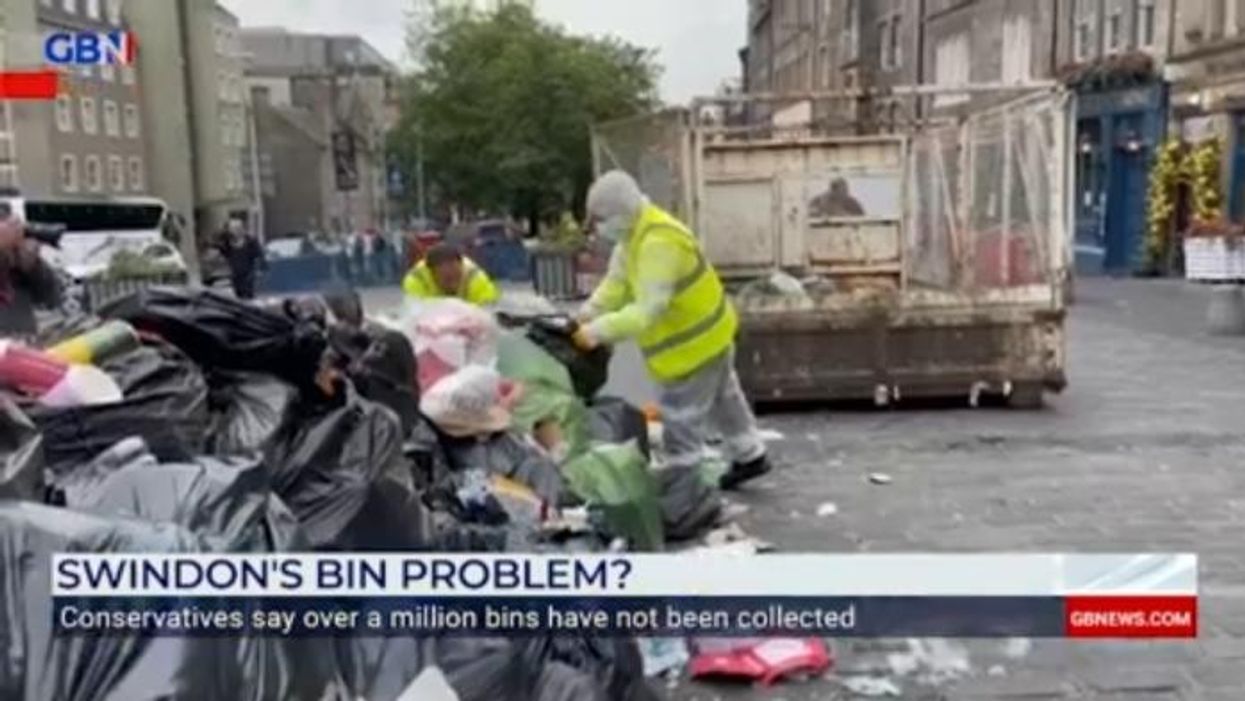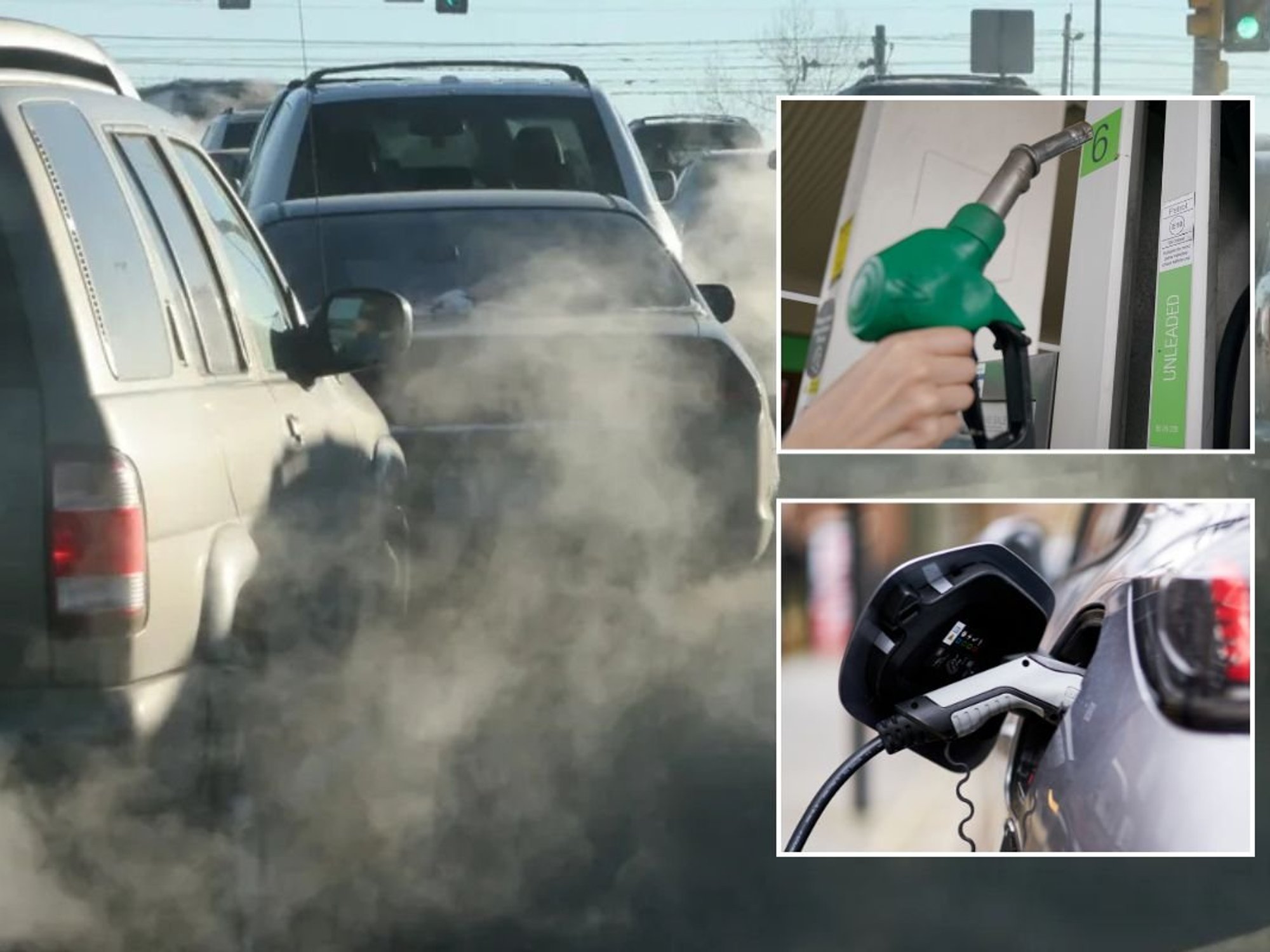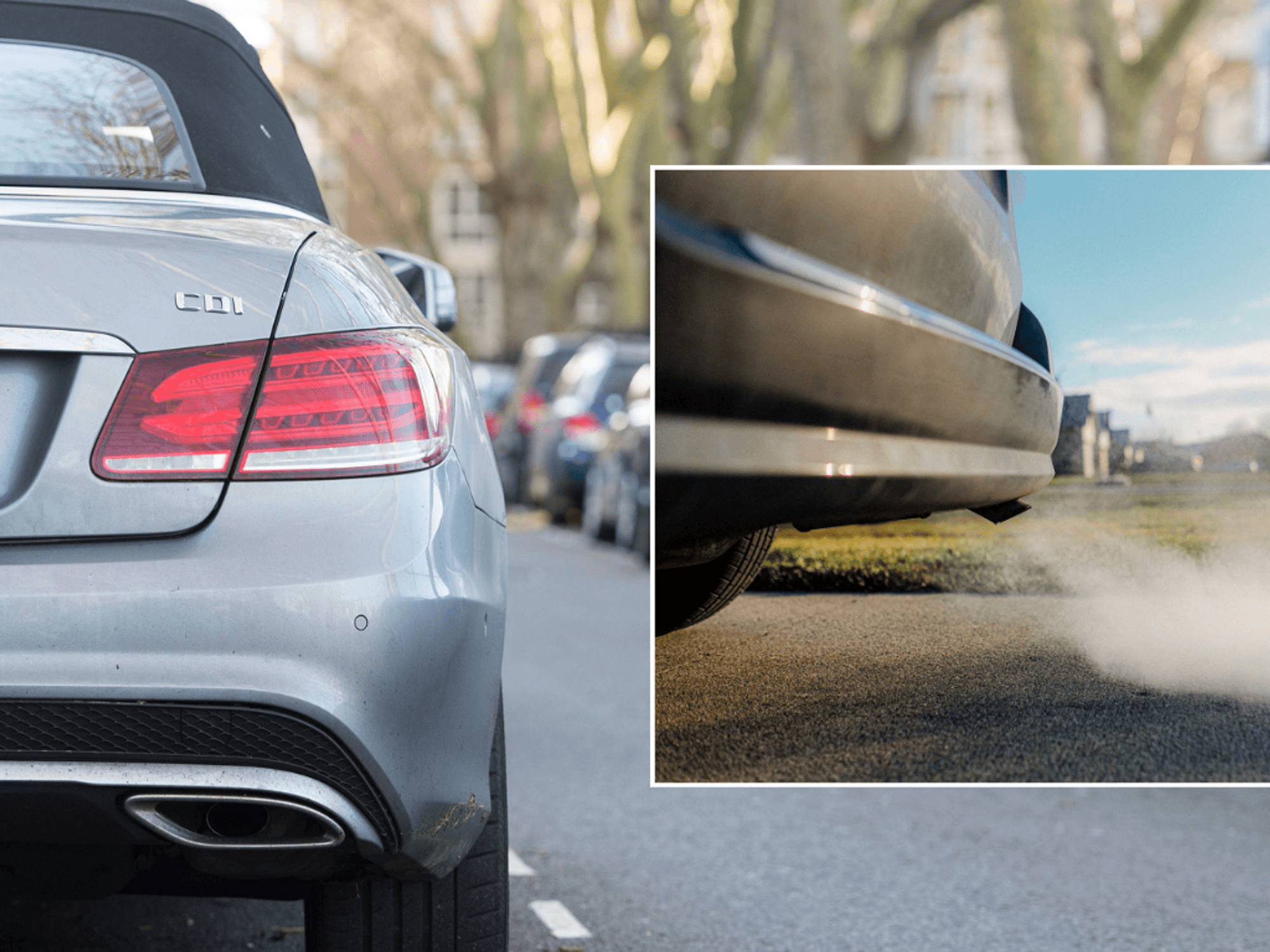Your Area, Your Issues: Should your county be ashamed of the litter choking and mutilating animals - Britain's WORST listed

See how your area compares to others across the country in this GB News Members deep-dive
Don't Miss
Most Read
Thousands of animals have been found severely injured, trapped, mutilated, choked or even dead from carelessly discarded litter over the past four years.
New figures released by the charity RSPCA earlier this year revealed animals are being injured with items including fishing hooks, rubber tubing and tangled rope.
RSPCA anti-litter campaigns manager Carrie Stones said: “Our rescuers deal with thousands of avoidable incidents every year where animals have been impacted by litter.
“Old drinks cans and bottles, plastic items and even disposable vapes are just some of the items that pose a danger to our wildlife - including hedgehogs, deer and foxes.
"Animals can ingest the litter or become entangled, leading to injuries, mutilations and even death.
“Sadly, for every animal we’re able to help there are probably many others that go unseen, unreported and may even lose their lives.
"But the public can help us protect animals, and avoid these incidents happening in the first place."
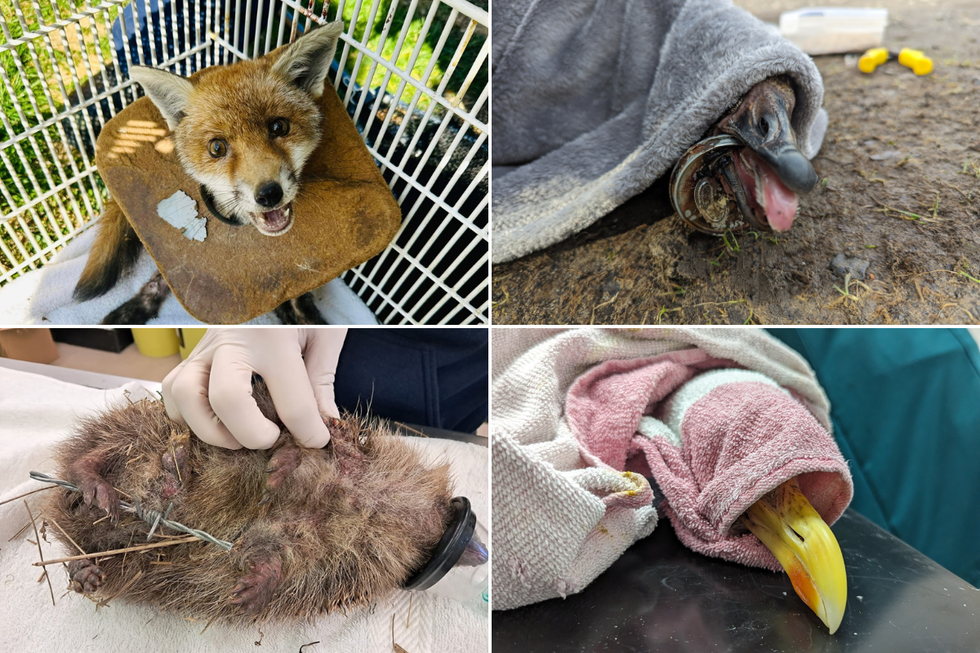
Some of the animals caught in litter
|RSPCA
The data, which covers 2020 to 2023, showed that Greater London topped the chart, with 1,439 calls made to the RSPCA about animals affected by litter, with Devon in second place on 594 calls, and Kent in third with 526 calls.
At the other end of the table was the City of London with just five call outs. Rutland was in second last with seven reports. In Wales, there were 614 calls made, with Cardiff topping the table with 106 calls and Denbighshire in second with 71 calls made over the four years.
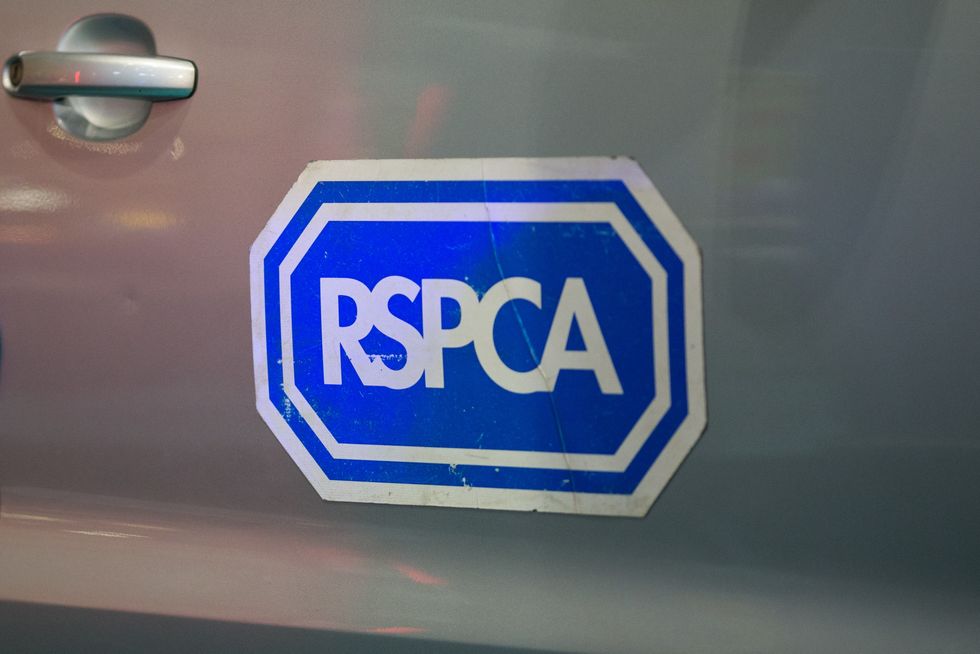
The RSPCA were called out to thousands of incidents over the last four years
|PA
Here are the full rankings for Numbers of calls made to RSPCA from each county in England
1.Greater London - 1,439 calls2.Devon – 594 calls
3.Kent - 526 calls
4.Greater Manchester – 500 calls
5.West Midlands – 437 calls
6.Essex – 428 calls
7.East Sussex – 399 calls
8.Hampshire – 395 calls
9.Merseyside – 326 calls
10.Cornwall – 300 calls
11.Dorset – 298 calls
12.Lancashire – 298 calls
13.Norfolk – 290 calls
14.West Sussex – 283 calls
15.Nottinghamshire – 278 calls
16.Cheshire – 278 calls
17.Staffordshire – 271 calls
18.Lincolnshire – 262 calls
19.North Yorkshire – 249 calls
20.Somerset – 239 calls
21.Tyne and Wear – 236 calls
22.West Yorkshire – 234 calls
23.Hertfordshire -222 calls
24.Suffolk – 215 calls
25.Surrey – 213 calls
26.Gloucestershire – 208 calls
27.South Yorkshire – 203 calls
28.Leicestershire – 193 calls
29.Derbyshire -171 calls
30.Berkshire – 161 calls
31.Wiltshire – 160 calls
32.Buckinghamshire – 154 calls
33.East Riding of Yorkshire – 154 calls
34.Bristol – 135 calls
35.Northamptonshire – 130 calls
36.Durham – 112 calls
37.Warwickshire – 110 calls
38.Worcestershire – 106 calls
39.Cumbria – 103 calls
40.Oxfordshire – 99 calls
41.Bedfordshire – 94 calls
42.Shropshire – 82 calls
43.Northumberland – 50 calls
44.Isle of Wight – 45 calls
45.Herefordshire – 38 calls
46.Rutland – 7 calls
47.City of London – 5 calls
There were 267 calls of unknown location, taking the total for England to 11,936 calls.
Here are the full rankings for Wales:
- Cardiff – 106 calls
- Denbighshire – 71 calls
- Swansea – 61 calls
- Conwy – 57 calls
- The Vale of Glamorgan – 35 calls
- Ceredigion – 34 calls
- Carmarthenshire – 26 calls
- Gwynedd – 24 calls
- Flintshire – 22 calls
- Neath Port Talbot – 22 calls
- Newport – 20 calls
- Caerphilly – 17 calls
- Powys – 17 calls
- Monmouthshire – 15 calls
- Pembrokeshire – 15 calls
- Torfaen – 15 calls
- Rhondda Cynon Taff – 13 calls
- Wrexham – 13 calls
- Isle of Anglesey – 12 calls
- Merthyr Tydfil – 9 calls
- Blaenau Gwent – 5 calls
- Bridgend – 5 calls
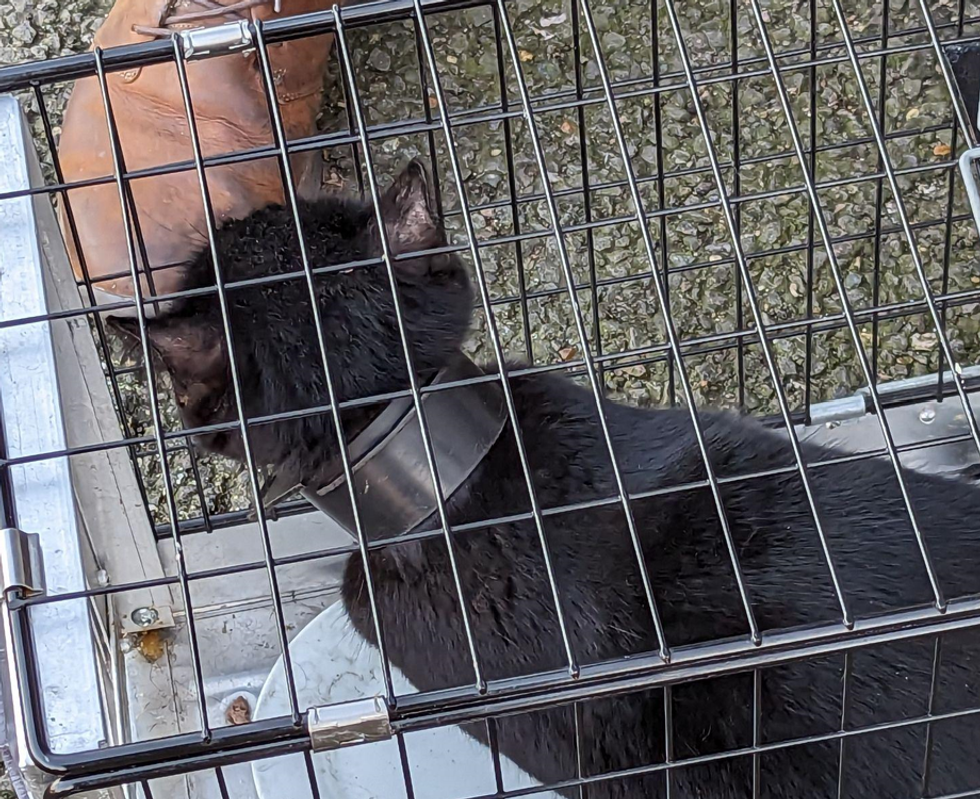
The cat was found near the airport with tubing around its neck
|RSPCA
Case Study 1:
A cat was strangled by a piece of rubber tubing near London Heathrow airport.
RSPCA inspector Francesca Tambini said: “A gentleman alerted us to the struggling cat, after seeing the poor thing running around stuck inside the plastic tubing. The cat is one of a few feral cats he kindly feeds and takes care of.
“With the help of my colleague, I was able to set up a trap to catch the cat so we could cut away the guttering and check for any injuries. Thankfully the cat was in good health and uninjured so we were able to do a speedy rescue and release.
“It is heartbreaking to see an animal caught up in plastic waste. Thank goodness someone saw what had happened before it was too late.
“It’s unlikely the poor cat would have survived for long like this, the tubing must have prevented grooming and eating. We aren’t sure exactly how long the tubing had been there, but likely it had been a few days.”
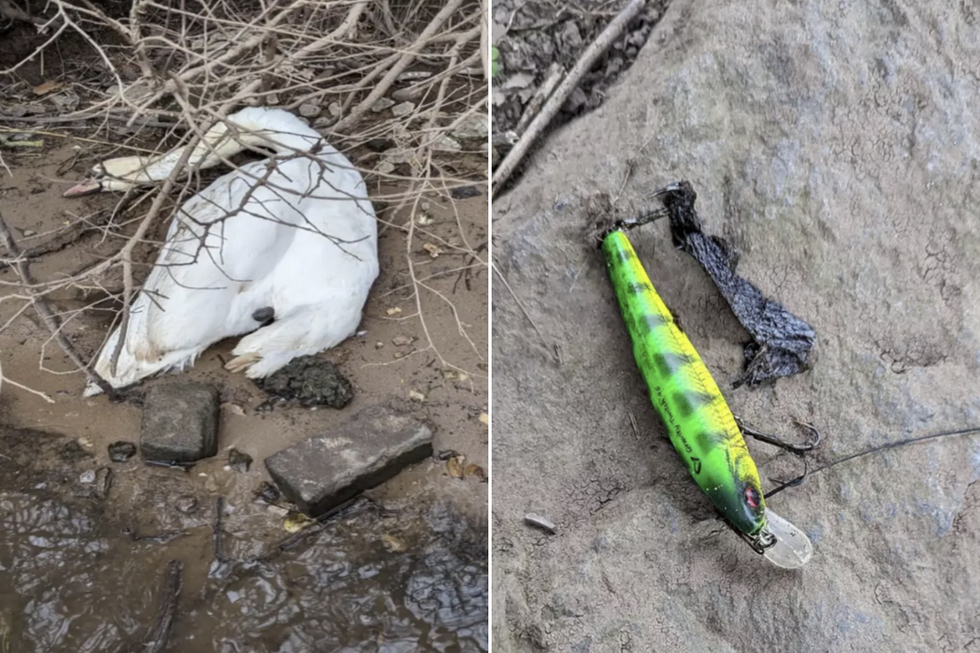
The swan was found with the fishing hook under its wing
|RSPCA
Case Study 2:
A Swan was injured by injured by fishing hook in Burton-upon-Trent.
The animal was found on the embankment of the River Trent near the village of Branston. RSPCA inspector Ann Bennett said: “Inspector Michael Darling attended and quickly established that a boat was urgently necessary to assist the poorly swan - with suspected avian flu - due to the swan being in a remote, inaccessible area.
“Reports were that the swan had barely moved, was unresponsive and was at risk of drowning due to its head bobbing in and out of the water with no control.”
Upon inspection from the boat teams, a fishing line with a treble hook was found attached to the swan, under his wing.
Inspector Bennett added: “We don’t know if the fishing line and hook was responsible for his poor condition, but it would have caused some discomfort and injury. We suspect he had avian flu.”
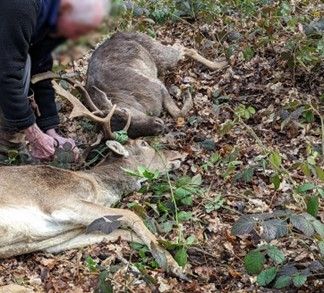
The deer were spotted with twine
|RSPCA
Case study 3:
Two deer were found tangled together in the woods near Ashford, Kent. The two large male deer were tightly tangled together by rope that had become firmly weaved around their antlers, leaving them completely unable to release themselves.
RSPCA Inspector Clive Hopwood arrived at the field in search of the stricken deer. He said: “Unsurprisingly, these two deer were incredibly stressed by the ordeal. One was frantic and trying desperately to escape, and the other had collapsed from exhaustion and was being pulled around by the other. The health of deer can rapidly decline when they are stressed, so we knew we had to act quickly.”
The frantic deer was darted with a tranquiliser, allowing the teams to approach the pair safely and untangle and remove the rope from their antlers. The deers were checked over for signs of injury but luckily both appeared to be in good health so could be left to wake up in their own time.
Clive added: “These two male deers were incredibly lucky to have been found, and the people who spotted them did the right thing by calling experienced rescuers like us to deal with the situation. It’s another reminder of what we can achieve together for animal welfare.”


